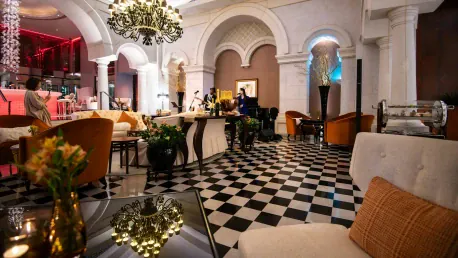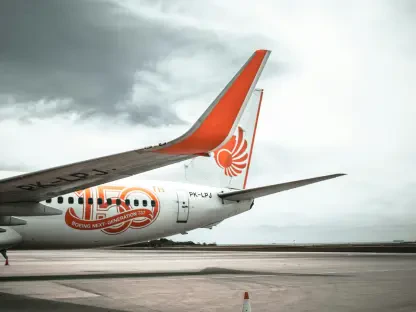The hospitality industry is increasingly turning toward specialized technology solutions to meet the ever-evolving demands of guests and maintain a competitive edge in the market. Unlike traditional all-in-one tech platforms, which promise convenience and a broad range of functionalities, specialized solutions are lauded for their heightened efficiency, flexibility, and capacity for innovation. This shift represents more than a simple technological preference; it highlights a transformative approach aimed at enhancing guest experiences and operational efficacy. However, the transition to specialized tech tools is not without its challenges, particularly when it comes to integrating a myriad of different systems effectively.
The Shift from One-Stop-Shop Solutions to Specialization
The hotel industry has long relied on comprehensive, all-in-one technology solutions for their apparent convenience and ease of use. These systems have been designed to manage a multitude of functions simultaneously, ranging from property management and booking to guest communication and housekeeping. However, as the hospitality landscape becomes increasingly complex and competitive, the limitations of these broad, one-size-fits-all solutions are becoming evident. Specialized tech tools, which focus on specific, niche functionalities, are emerging as the preferred options for many establishments.The primary advantage of specialized solutions lies in their flexibility and ability to integrate seamlessly with other systems. This agility is essential in an industry where trends and customer expectations can change rapidly. Hotel technology experts are now advocating for these specialized solutions, arguing that they offer superior quality and more precise functionality compared to their one-stop-shop predecessors. The ability to tailor each tool to specific needs allows hotels to craft a more personalized experience for their guests, ultimately enhancing customer satisfaction and loyalty.
Navigating the Complexity of Hotel Tech Systems
As hotels move toward adopting specialized technology, they are confronted with a daunting and often overwhelming landscape. The sheer volume of available tools and systems can be bewildering even for seasoned professionals. Each technology solution comes with its own set of features, pricing structures, and integration requirements, making the selection process a significant challenge for hotel management teams. Navigating through this maze requires not only a deep understanding of the hotel’s specific needs but also a strategic approach to integrating new systems.Often, hotels find themselves over-subscribing to multiple tech tools in an effort to cover all their bases, which can lead to conflicting resources and inflated costs. This proliferation of technology complicates effective management and dilutes the potential benefits of individual solutions. Therefore, hoteliers must engage in meticulous planning and strategic decision-making to select the right blend of specialized tools. This selection process involves evaluating the potential impact of each technology on hotel operations, guest experiences, and overall efficiency. It also calls for a keen understanding of how various tools can be integrated to work together harmoniously.
The Importance of Integration and Collaboration
One of the most significant challenges in adopting specialized tech solutions is ensuring seamless integration between various systems. For instance, a Property Management System (PMS) must work in harmony with booking engines, channel managers, and other essential tools to provide a cohesive operation. The success of hotel operations hinges on the functionality and interoperability of these integrated systems. Robust integration ensures that all parts of the operation are synchronized, leading to smoother workflows and better guest experiences.Platforms like protel, which offer extensive plug-in capabilities, underscore the importance of robust integration. By supporting over a thousand plug-ins, such platforms allow hotels to tailor their tech stack precisely to their unique requirements. This flexibility enables hotels to adopt a customized approach, selecting the best tools for specific functions while ensuring they work together seamlessly. Collaboration between technology providers is crucial in creating an ecosystem where specialized tools can effectively interact. This collaborative effort ensures that different systems can share data and functionalities smoothly, enhancing overall operational efficiency.
The Role of APIs in Modern Hotel Operations
Application Programming Interfaces (APIs) play a crucial role in the integration process, acting as the backbone of modern hotel operations. A strong, two-way API connection ensures that all systems communicate efficiently, sharing data and functionalities seamlessly. This interconnectedness is vital for maintaining a cohesive tech ecosystem that can adapt to new advancements and changing guest expectations. APIs enable different tools to work together, streamlining hotel management processes and enhancing guest experiences.By leveraging strong API integrations, hotels can maintain competitiveness and quickly adapt to new technological advancements. A well-integrated system allows for better data analysis, improved decision-making, and ultimately, a more personalized guest experience. The emphasis on APIs highlights the industry’s shift toward creating interconnected, flexible, and adaptive technical infrastructures. As such, APIs are indispensable in modern hotel operations, enabling hotels to harness the full potential of their specialized tech tools.
Best Practices for Adopting Specialized Tech Solutions
The hospitality industry is increasingly embracing specialized technology solutions to address the evolving demands of guests and maintain a competitive edge. Unlike traditional all-in-one tech platforms, which offer a broad range of functionalities and convenience, specialized solutions are celebrated for their enhanced efficiency, flexibility, and potential for innovation. This shift signifies more than just a preference for certain types of technology; it indicates a transformative approach aimed at improving guest experiences and operational efficiency. However, the move toward specialized tech tools isn’t without its challenges. Integrating various systems effectively can be particularly daunting. Despite these hurdles, the benefits of adopting specialized technology often outweigh the drawbacks. These solutions can offer more tailored services, customization, and scalability that traditional platforms might lack. In the long run, the adoption of specialized tech not only meets current guest expectations but also positions hospitality businesses for future growth and adaptability, making it a strategic investment.









